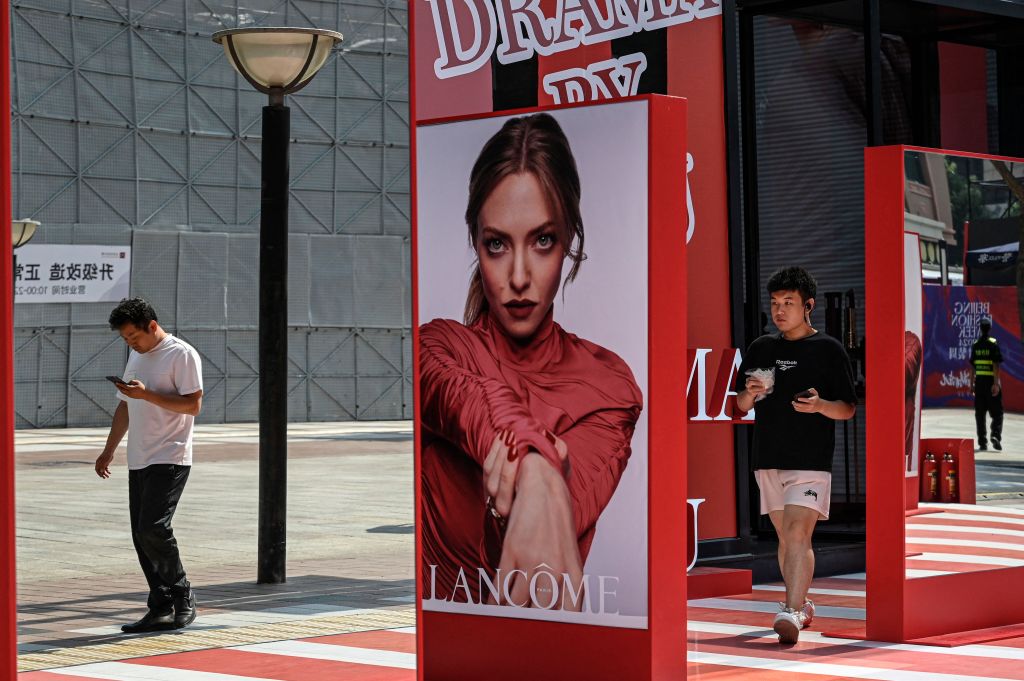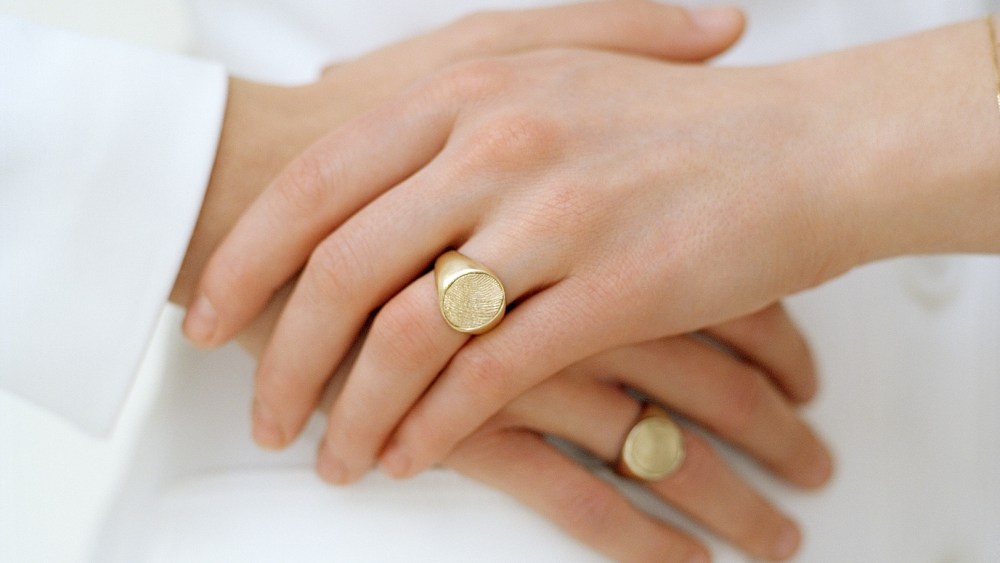The slowdown continues: 2024 is shaping up to be another challenging year for beauty players in China as consumers grapple with uncertain macroeconomic prospects.
In 2023, the world’s second-largest beauty market registered a modest 5.1 percent growth, reaching 414.17 billion renminbi, or $58 billion, according to data from the National Bureau of Statistics.
The luxury category exhibited stronger growth of around 8 percent, driven by momentum in fragrance and makeup categories, according to Bain.
However, in the year ahead, Bernstein expects the mass market to advance around 10 percent, and outpace the premium segment’s forecasted 5.6 percent growth in 2024.
Related Articles
“Consumption polarization should persist, with the mass segment outpacing premium cosmetics, indicating consumer preference towards affordable and value-for-money cosmetics,” wrote Bernstein’s Melinda Hu. Segment-wise, color cosmetics is projected to grow at 9.3 percent, faster than skin care’s 7.7 percent, according to Bernstein.
A highly fragmented retail landscape, spread across offline retail and e-commerce platforms such as Tmall, Douyin, WeChat Mini Program and Xiaohongshu, is expected to help nimble local players maintain the upper hand over their global counterparts.
Last year, more than 20 foreign beauty brands, such as E.l.f. Cosmetics, Huda Beauty, Benefit and Japan’s Amplitude disappeared from China’s e-commerce market, even though some vowed to return shortly.
According to Qingyan Company, a Chinese beauty research firm, sales of C-beauty brands rose 21.2 percent year-on-year in 2023 to comprise 50.4 percent of the Chinese cosmetics market, overtaking foreign brands for the first time.
Smart e-commerce execution will continue to dominate market narratives in 2024, a shopping behavior that stuck after COVID-19.
“The demand for content creation has reached unprecedented levels across all platforms,” said Franklin Chu, managing director of Azoya U.S., who said brands should take note of Tencent’s WeChat video account as an emerging social commerce player.
Douyin, which stands out in the current social media landscape, also deserves special attention, as beauty sales have surged over 60 percent to $1.9 billion in the first eight months of 2023, according to Shanghai Securities data.
For Isabelle Zhuang, general manager China at Augustinus Bader, 2024 will mark yet another “turning point” for the beauty market.
“As C-beauty brands quickly win over ground from foreign players, shoppers’ habits have been reshaped in many ways and become more mature. That also applies to brands like us,” said Zhuang.
According to the investment bank Jefferies, Chinese consumers are not only trading down and conditioned to purchase only during promotional holidays, but they are expecting services more than products. For Zhuang, that mean reevaluating the balance between online and offline.
Bader has found success with a celebrity method that comes with a localized twist. By working with socialite-turned-livestreaming star Teresa Cheung, sales at the brand scored more than 2.7 million renminbi, or $378,300, in one of Cheung’s multibrand livestreaming session. To better engage offline, Augustinus Bader has hosted pop-up shops in luxury shopping malls and is considering bringing its Skin Lab to China.

Taking a closer look at the market polarization trend, Euromonitor found in a recent survey that Chinese consumers’ preference for lower prices surged in categories such as shampoo, facial cleansers, moisturizers and foundations.
Scalp care, a nascent category in the market, has quickly gained traction as an overall awareness of self care extends beyond the face.
In 2023, domestic leaders invested money and effort in promoting brands in the hair-care category. Bloomage, the largest hyaluronic acid producer turned skin care leader, and Proya, one of the largest beauty groups in the market, have both developed brands that target young consumers who are experiencing stress-related hair loss.
Market forerunners are also doubling down on fresh formulas to engage Chinese shoppers. According to Euromonitor’s Health and Beauty Asia Insights manager Yang Hu, “bio-based materials” and “conceptual medical aesthetics ingredients” are two categories to watch.
“Consumers are placing increased trust in materials derived from the extension of the medical aesthetics concept. For instance, products such as micro-needle serum and the utilization of recombinant collagen hold significant potential,” said Yang.
In December, L’Oréal launched the second generation of the L’Oréal Age Perfect Collagene Royal cream, which included recombinant collagen, an ingredient produced by Chinese company Kinbo Biotech. Bloomage’s research on seven to eight types of collagen is also spurring new solutions in antiaging formulation.
According to L Catterton‘s Asia fund managing partner Scott Chen, some domestic players are even “better equipped than international ones at addressing these needs,” noting a recent investment in Trautec, a domestic manufacturer of synthetic collagen.
New consumption patterns in the Chinese market are also emerging, especially among male consumers and Gen Alpha shoppers.
Euromonitor’s Hu said that male consumers are becoming pickier and want more specialized products, ranging from “basic functionalities like oil control or moisturizing to antiaging and sun protection.”
Teenagers, or Gen Alpha, might not have the spending power, but Hu believes their consumption habits and preferences will influence market trends in five to 10 years. Case in point — Hi!Papa, a personal care company for 3- to 12-year-olds, recently completed a round of series A+ funding from L Catterton.

The usage of generative AI in e-commerce livestreaming could enter the mainstream in 2024, shaking up the key opinion leader landscape.
“Since Austin Li, also known as the ‘Lipstick King’ in China, had inappropriate speech and caused controversy among the public, brands and retailers realized that the AI anchors can mitigate such risk of influencing sales,” said Chu. Last September, two months before Singles’ Day, Li came under fire for criticizing a viewer who said a 79 renminbi, or $11, Florasis eye pencil was overpriced. Even though Li and Florasis quickly apologized, sales at Florasis’ Tmall store fell sharply, according to local media reports.
To avoid human errors like these, beauty brands like L’Oréal Paris, Helena Rubinstein, Olay and Lancôme have begun leveraging virtual hosts for livestreaming.

According to data from iResearch, the Chinese AIGC [artificial intelligence generated content] market is projected to surge almost fivefold to reach 43.6 billion renminbi, or $6.3 billion, by the end of 2024.
Beauty in the travel retail market is also expected to decline. In 2023, sales of cosmetics in the Hainan duty-free market underperformed compared to the hard luxury category.

Based on the latest data released by Haikou customs, for the months of October and November, cosmetics and perfumes contributed 41 to 42 percent of total Hainan off-shore retail sales, which is lower than 52-56 percent for the same period in 2022.
According to Bernstein analysis, a consumption downgrade, consumer boycott of Japanese cosmetics, and crackdown on Hainan daigou, or surrogate shoppers, has exacerbated the issue.
“The decreased Hainan duty-free retail performance actually signifies a return to normalcy,” said Hu. “This is attributed to adjustments in outbound tourism trends, with Chinese tourists increasingly traveling globally rather than solely to Hainan.”



